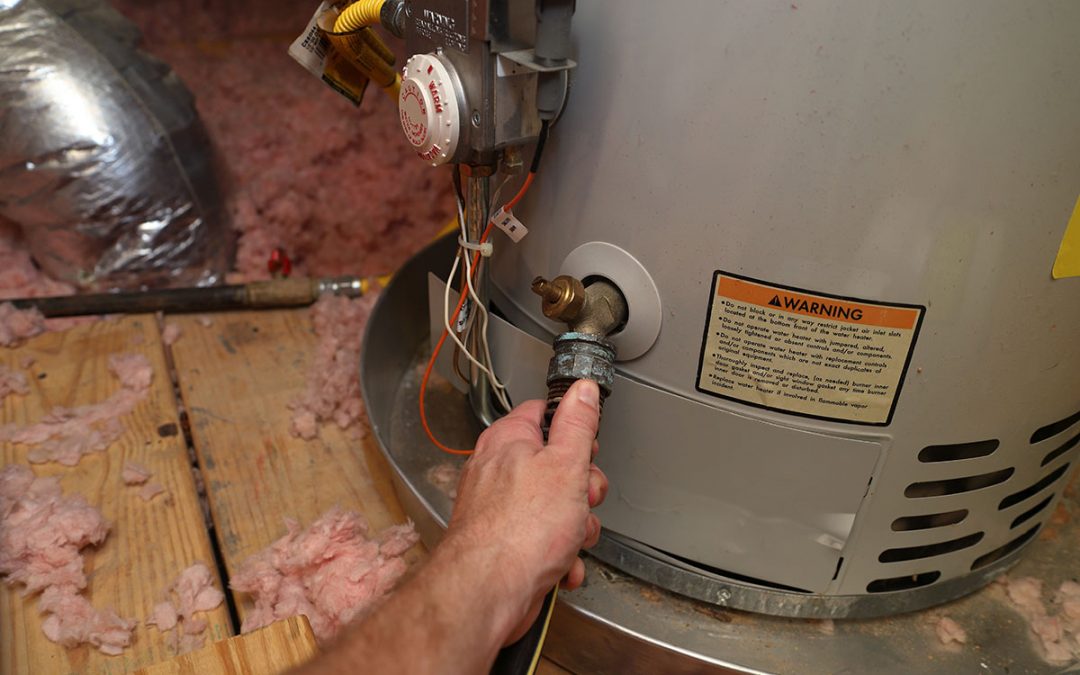A water heater is one of the most crucial appliances in a home, providing hot water for daily use such as showers, dishes, and laundry. It is easy to overlook this appliance, but when it starts to show signs of wear and tear, it can be a major inconvenience. In this blog, we will discuss the signs you need a new water heater and why it matters.
- Age: The average lifespan of a is between 8 and 12 years. If your system is approaching or exceeding this age, it may be time to consider a replacement. With age, the chances of it breaking down and needing repairs increase, which can become costly over time.
- Rust and Corrosion: Rust and corrosion are common signs that your water heater is reaching the end of its life. This can lead to leaks, which can damage your home and impact the safety and efficiency of your appliance. If you notice rust or corrosion on your system, it’s important to have it inspected as soon as possible to determine if it needs to be replaced.
- Strange Noises: If your water heater is making strange noises, such as rumbling, popping, or banging, it could be a sign that the heating element is failing. This can result in a breakdown of your hot water tank and a loss of hot water, among other issues.
- Inadequate Hot Water: If you’re having trouble getting enough hot water or the hot water you do get is not hot enough, your water heater may be failing. This could be due to a faulty heating element, a clogged tank, or a problem with the thermostat.
- Leaks: Leaks are a major red flag! A leaking water heater can cause significant damage to your home and result in wasted water and energy. If you notice a leak, it’s important to have it inspected immediately, as it may be a sign that your water heater is beyond repair and needs to be replaced.
- Poor Efficiency: If your water heater is not as efficient as it once was or if your energy bills have been consistently increasing, it may be time to replace your appliance. A new, high-efficiency system can help you save money on energy bills and reduce your carbon footprint.
Types of Systems
There are two main types of hot water systems: electric and gas. Electric water heaters use electricity to heat the water, while gas water heaters use natural gas. Both have their pros and cons, but gas systems are generally more efficient and cost less to operate than electric systems.
 Materials Used
Materials Used
Water heaters are typically made from metal, and over time, the metal corrodes. This corrosion can lead to leaks and other problems, so it’s important to choose a water heater that is made from a corrosion-resistant material. Stainless steels are a popular choice for water heaters because they are durable and resistant to corrosion.
Preventing Corrosion
There are several ways to prevent corrosion in water heaters, including using corrosion-resistant materials, such as stainless steels, and ensuring that the storage tank is properly maintained. Regular maintenance, such as flushing the tank and checking for leaks, can help prevent corrosion and extend the life of your water heater.
Forms of Corrosion
There are several forms of corrosion that can affect water heaters, including:
- Galvanic Corrosion: This type of corrosion occurs when two different metals are in contact with each other and an electrolyte, such as water, is present. This can cause an electrical current to flow between the metals, which can result in corrosion on one of the metal surfaces. Galvanic corrosion is most commonly seen in electric water heaters that have dissimilar metal components, such as a steel tank and a copper heating element. To prevent galvanic corrosion, it’s important to use materials that are compatible and not prone to this type of corrosion.
- Uniform Corrosion: This type of corrosion occurs when a single metal surface is affected by the corrosive properties of the water. Uniform corrosion can be caused by high levels of dissolved minerals, such as iron or copper, or by high levels of acidity or alkalinity in the water. To prevent uniform corrosion, it’s important to regularly flush the tank to remove any buildup of minerals, and to use a water softener if necessary.
- Pitting Corrosion: This type of corrosion occurs when small holes or pits form on the metal surface. Pitting corrosion is often caused by high levels of chloride in the water and can be accelerated by high temperatures. To prevent pitting corrosion, it’s important to use corrosion-resistant materials, such as stainless steels, and to regularly flush the tank to remove any buildup of chloride.
Remember, when it comes to hot water tanks, early detection and intervention can save you time, money, and headaches in the long run. Don’t wait until your system fails completely, take action today!
Get expert Help for Your Water Heater – Contact FMM Today for a Scheduled Inspection
Having a reliable and efficient water heater is crucial for a comfortable home, but when it starts to show signs of wear and tear, it can cause headaches and inconvenience. FMM is here to help!
With a team of skilled technicians, we offer professional hot water system inspections to ensure your appliance is in top working condition. Call us today to schedule your appointment and take the first step towards a properly functioning water heater. 225-910-8757


